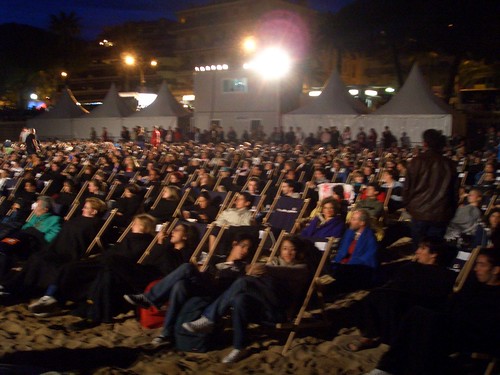A couple of weeks ago Jonathan Marlow posted a piece to the GreenCine Daily blog that created a minor stir in the festival world. It's an essay called "They Didn't Build Their Sales Model For You" that raises a lot of questions about the festival circuit, the collective place of filmmakers within it, and what happens after a film has made its festival run.
Since the beginning of the independent "common era" (circa 1989), the traditional Grail-quest of acquisition-derived-from-festival-screenings was a relative uncertainty. Now, nearly 30 years later, such good fortunes are approaching the level of impossibility.
Marlow leaves it to others to answer the majority of questions he asks, but the piece echoes the examples and pointed questions that often come up when filmmakers talk amongst themselves about distribution of and compensation for their work. I don't have easy answers for Marlow or anyone else, but I let's take a minute to explore some of the notions expressed and implied by his piece.
Since I started writing this reaction there have been a lot of responses, most notably here and here, and a follow-up post from Marlow himself. It's a hot topic to say the least. I expect Marlow himself already has a clear understanding of everything I'm about to cover, but so many of the filmmakers and moviegoers I encounter at such festivals do not that I feel some discussion is warranted.
Notion #1 - The festival circuit is an "ersatz" distribution system. "Informal" or "unintentional" might have been better adjectives here, but the meaning is taken as intended. As art house theaters close or reduce their independent offerings, the festival circuit is evolving into the only growing form of theatrical exhibition left for indie filmmakers. (Over at B-Side we're working on new forms of audience-driven "theatrical" screenings, but programs like these are in their infancy.) That doesn't make the festival circuit a distribution method, however, because (as others have pointed out previously) the festival circuit is not a centrally-organized network with the stated purpose of delivering films to audiences and compensating the filmmakers for their work.
Festivals cull through the mass of indie flicks available and put them on large screens in front of willing moviegoers, true, but (with a few exceptions) they do so as non-profit arts organizations. This is what allows festivals to select movies on relatively egalitarian and merit-based criteria, though festival programmers certainly feel the need to pack houses (more on this later). The good news for filmmakers is that festivals take more risks and display a wider range of movies than any other (non-Internet) exhibitor. If anyone in this wide world is going to show your movie, it's going to be a film festival.
Now for the bad news.
Notion #2 - The money collected by festivals in the form of submission fees, sponsorships, and ticket sales doesn't find its way back to the exhibiting filmmakers. This one is true -- filmmakers don't see a dime from these screenings, at least not directly from the festivals. There are plenty of filmmakers who think that festivals should cut them in for a piece of the action, and their rally cry is usually something along the lines of "without the films the festivals wouldn't exist." The flaw in this particular logic is that it assumes the festival staffers are lining their pockets at the expense of filmmakers. It's an easy mistake to make -- certainly the free-flowing liquor, high-end hotel rooms, and red carpet screenings project an image of glamour and success that the festival would like you to believe. That's the image they sell to the audience to entice them to show up. Pierce that thin veil of glitz, however, and you're likely to find a young, underpaid staff hunkered down in tiny offices, holding their festival together from year to year with the help of volunteers and masking tape. The vast majority of film festivals survive through a combination of government grants, sponsorship dollars, ticket sales, and of course the despised submission fees. (These fees are a much smaller portion of overall festival revenue than you might expect, which is why some fests dispense with them. Most of the time fees exist as a barrier to entry, keeping every schlub with a camcorder from submitting his home movies.)
So where's the money going? Mostly towards operational costs, including those meager staff salaries and office rent, but also towards theater and equipment rentals, hotel and airfare for filmmakers and other guests, printing, ground transportation -- the list goes on. Even for small fests the operating expenses can range into the hundreds of thousands of dollars -- larger festivals require millions per year to keep going. "The cost for projection equipment and venue rental alone can eat through our ticket sales for any given screening," Austin Film Festival programmer Kelly Williams told me recently. "On a good night, all expenses considered, we break even."
The notion that festivals could somehow share the revenue from ticket sales isn't completely without merit but it's a thorny problem. What if a festival increased its per-ticket price by a few dollars and promised to pass that "surplus" on to the filmmaker? The accounting would be nightmarish (and likely impossible in the case of short film programs), but the real question is: would filmmakers be incented to work even harder to fill their screenings, knowing that they stand to make a few hundred bucks on the deal? I have a hunch that the results would be mixed at best. Some filmmakers would kick ass to really make it work, others would operate about the same as they do now, and still others would find the rewards insufficient. After all, even with a medium-sized theater of 200 seats, you're only talking about making back the cost of a single plane ticket -- and that's if you pack the house.
I can tell you with near certainty that overall happiness at film festivals wouldn't be increased by this scheme. At any given festival there are always a tiny but vocal minority of filmmakers unhappy about the way they or their films are being treated. Introducing the almighty dollar into the equation could only make this situation more treacherous. Suddenly a smaller venue represents not just less prestige but also fewer seats to potentially sell. A less-than-desirable screening time or a perceived smaller share of the festival's marketing efforts would suddenly mean lost revenue in addition to smaller crowds. Festival programmers would be under pressure to take fewer risks, especially given that audiences likely wouldn't respond well to higher ticket prices. Given that the festival system works reasonably well now without the promise of remuneration, it's unlikely that even the most forward-thinking of fests would introduce such unwelcome complications and the potentially explosive situations that could result.
Some festivals do pay flat screening fees, though more often to the distributors of popular films that have already been acquired than directly to independent filmmakers. There is an entire class of festival that currently pays for a large portion of the feature films they screen: the gay & lesbian (aka the "GLIFFs" or GLBT) festivals. Demand for GLBT-interest films is high enough, and the material scarce enough, that most quality films in the category get snapped up by distributors quickly. Those distributors know that the target market isn't large enough to support a traditional theatrical run, but they can generally count on the festivals to pay a fee for the right to screen a popular festival film.
Such festivals are caught in a tough spot between what they can afford and what their audiences expect to see from other GLBT festivals. Lisa Kaselak, programming director for the Austin Gay & Lesbian Film Festival, admits that paying such fees makes her job more difficult, but as a working filmmaker she has seen the benefits of the system as well. "[Gay and lesbian] festivals across the U.S. are really struggling to pay the screening fees we have to pay. The margins are razor-thin and we often lose money on screenings. I can't blame distributors though, because they provide a valuable service." Don't expect this model to creep into the mainstream fests, however. Mainstream fests pay far fewer screening fees and some refuse to pay them at all. With a larger pool of fee-free films to choose from, they can well afford to do so.
With the notion that festivals are a potential source of revenue at least partially laid to rest, let's turn our attention to another implication of Marlow's essay that turns out not to be true:
Notion #3: There's money to be made in theatrical distribution. Filmmakers get starry-eyed at the thought of their flims playing metroplexes around the world, but when all is said and done even the major studios rarely make their money back after prints and advertising. Theatrical runs these days are basically promotional campaigns to sell DVD copies. There is a direct correlation between the number of people who see a film in the theaters and the eventual sales success of a film on DVD, but the revenue from the theatrical run itself is almost always negligible. (Harry Potter flicks and Spider-Man sequels aside.)
What does it mean for filmmakers? Well, if the festival circuit is the only "theatrical run" your film is likely to get, you'd better make the most of it. Gear up the marketing machine and pack those screenings, because the more people who see your film now, the more people who will buy it on DVD later. A more interesting idea buried in here is the thought that there is a direct correlation between the number of people who see your film (under any circumstances) and the number of people who will eventually buy it. This sounds obvious and simple, but some filmmakers behave as if exactly the opposite were true. They fret about piracy (you should be so lucky!), dither about putting their films online, and withhold screeners as if the discs were made of gold. If your film is that good viewers will pay for it -- but they have to know about it first. Try viewing every "free" screening of your film not as a sale you lost but as a marketing opportunity you gained.
I've written more about this elsewhere and expect to do so again, but it's a concept filmmakers need to wrap their heads around: hiding your light (or film) under a bushel for fear of "overplaying" it or tapping out a limited audience is old-school thinking.
Notion #4: Most films that play festivals deserve wider audiences than they get after their festival run is over. This notion follows on the idea that if a film plays a festival it must be a good film. Anyone who has been to a few film festivals can tell you that simply isn't true -- there are plenty of sub-par films playing festivals, especially those whose directors rely solely on a few hundred submissions to program their entire event. You can't really fault festivals for playing the best from a limited pool of submissions, but it doesn't make them good films and it certainly doesn't make them candidates for widespread distribution. As a filmmaker, you need to be prepared to recognize that even though you made a movie and even though it played the festival circuit, it might not be good enough ever to pay for itself.
Even technically "good" films can fail to find distribution after their festival runs. In casual conversation at festivals you occasionally hear the phrase "I'd even recommend that film to my mom." It's a telling phrase: it implies that the majority of movies one sees at festivals aren't suitable for mom, and poor mom is the metaphorical stand-in for the mainstream moviegoing populace. There are those distributors whose mission is to support indie filmmakers, but reality often intrudes: selling a movie that people don't already know they want to see is hard, expensive work. Wouldn't it just be easier to sell the movies you'd recommend to your mom? I believe that there is a layer of indie films in between the top 5% that get distribution and the 90% of indie films that are mostly unwatchable. But there again, you're only talking about a thin slice of movies that get overlooked or need extra help to find the right audience. The vast majority of even festival-selected films -- quite likely yours included -- aren't going to get picked up.
Discouraging? Yes, but not quite cause for despair. Since the dawn of filmmaking, indie film has relied on an influx of cash from outside the system to survive. The filmmakers who eventually make it are the persistent ones. They continue to find sources for that outside cash (investors or day jobs or medical experiments) and continue to make movies until they create the picture that everyone wants to recommend to their mom. And who knows? Once you've done that, maybe you'll be able to sell your back catalog.
Just don't ask for a cut of the festival receipts.






 From
From  My coverage of Cannes? There isn't any. I can't afford to go to
My coverage of Cannes? There isn't any. I can't afford to go to  Further muddying the waters of what it means to "play Cannes" is the
Further muddying the waters of what it means to "play Cannes" is the 

 Just saw this on the
Just saw this on the 


